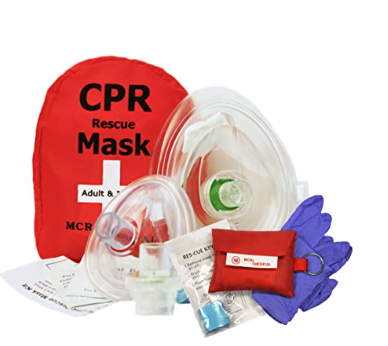Resolve to Learn CPR as a Family Strategic Preparedness Initiative!
When someone suffers cardiac arrest, it is essential to start CPR within the next two minutes. Damage to the brain begins after three minutes without oxygen.
The recent collapse, due to heart failure on the field, of Buffalo Bills starting safety Damar Hamlin, illuminates the need for key adult family members, friends, and on-the-job peers to resolve to learn CPR.
Our prayers continue for full recovery of Mr. Hamlin. He was blessed to be surrounded by those equipped with the skills and apparatus that ultimately saved his life, while waiting for the ambulance to arrive.
Many of us can recall the loss of a family member, friend, or co-worker who collapsed due to heart failure, and unfortunately couldn’t be resuscitated after first responders arrived. When minutes count, the pro-active response of those present, who can administer initial CPR, can potentially save a life.
There are common reasons why people don’t administer CPR when an emergency is taking place, even if they know how to do it:
- (1) Fear: They feel if they do it wrong, they will be held responsible for an injury or fatality
Fear of being sued is understandable. The truth is, in today’s litigious society, you can be sued for anything! However, the “Good Samaritan” law generally protects individuals in the U.S.
“As long as the rescuer is not willfully negligent or reckless in giving aid, and gives aid in a reasonable manner, then the rescuer will not be held legally liable for the outcome.”- Cardio Partners
Caveat: the use of a defibrillator does require training and a level of confidence and competence when used. If you have access to one of these devices but are not sure how to use it, don’t mess with it!
- (2) Fear of catching a disease when administering mouth-to-
 mouth resuscitation
mouth resuscitation
Yes, it is never advisable to perform mouth-to-mouth resuscitation unprotected! It is now routine to use resuscitator masks or other “barriers” that place a shield between the CPR provider and the victim. Everyone should purchase resuscitator masks, or other protective tools, to have on hand at home and in a vehicle.
- (3) Fear of improperly administering chest compressions or insufficient upper body strength to maintain life-saving pace.
Administering compressions is NOT EASY. You are expected to maintain compressions at 100 - 120 Beats per minute, until 1st Responders arrive.
As part of your family first responder strategy, at least two people in every household should learn CPR. This way, if an incident occurs, one person isn’t expected to do all of the physical activity required to maintain chest compressions!
In order to be prepared to assist with chest compressions, maintaining upper body and arm strength should be a regular objective.
PUSH UPS, which we should all be doing a few anyway, health permitting, is a great way to build upper body and arm strength!
The links below offer further information on the importance of CPS and how to acquire training!
African American Community and CPR (pressforlifecpr.com)
Can I really be sued if I perform CPR? What you need to know - AEDCPR
Why People May be Afraid of Performing CPR (acon.edu)
How to Build Arm Strength Without Equipment: 11 Steps (wikihow.com)
#Strategic #Preparedness #CPR #cardiopulmonaryresusitation



Comments
Post a Comment